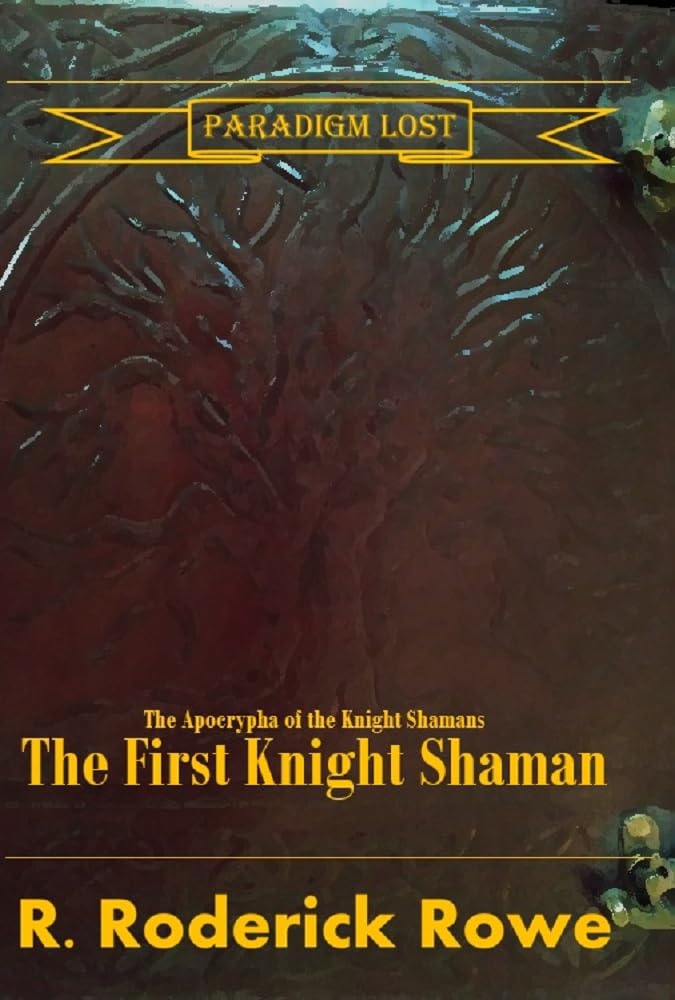In R. Roderick Rowe’s THE FIRST KNIGHT SHAMAN, the Great Quakes of 2040 have left the United States split into communities that are battling for survival. At seven years old, Rodney learns who his father is when a peer bullies him. This information, previously withheld and believed to be irrelevant due to the “it takes a village to raise a child” approach of the Elk Creek Tribe, plants a seed of resentment in his young mind. Having learned that his father is the tribe’s founder, he itches to be acknowledged by him (or at least receive some form of affection). However, he faces repeated perceived rejections that fan his growing bitterness. Adding to his tumultuous feelings is the discovery of an ability to see and converse with spirits. He must learn to harness this rare ability and control his emotions before he can truly serve his tribe.
Rowe’s storytelling is thought-provoking, exploring a change in mindset and practices established as the norm. For instance, the Elk Creek Tribe believes that favoritism should be eliminated has its children collectively raised in peer groups. There are efforts to stop personal relationships between parents and children wherever possible, as these children come under the tutelage of hearth leaders operating under strict laws and any attempt of parents to advance their children in society is frowned upon. This change in philosophy originated due to the mass deaths that occurred during the Great Quakes, which left many children orphaned. The book also puts forward the concept of a society in which homosexuality is the norm and heterosexuality is abnormal. In one instance, a hearth leader is rebuked for allowing a heterosexual couple to tutor the children: “How the […] can you tell me it’s okay to have a breeding pair in the classroom demonstrating that homosexuality is not the norm?”
Rodney’s journey of self-discovery and growth amid his internal struggles makes him an appealing and convincing character. His outbursts, based on his frustrations with his father and a system that seems to celebrate indifference in the place of parental warmth, are refreshing in contrast to the linearity of other characters (who mostly do as they’re told and remain underdeveloped throughout the story). A few exceptions include the protagonist’s father and a major. Otherwise, supporting characters are indistinct, lacking dynamism and emotional depth.
The balance between narration and introspection is well-maintained, ensuring the story progresses smoothly without interruption. When Rodney goes with a group to disrupt the planned attack of an opposing tribe, for instance, this encounter causes him to think deeply. At the same time, the group also moves swiftly to curb the opposition. However, the action scenes are as underwhelming as they are brief. The much-anticipated confrontation between the Elk Creek Tribe and their opponents is confined to a brief section of the book, offering minimal detail about the actual battle and creating a hurried conclusion.
R. Roderick Rowe’s THE FIRST KNIGHT SHAMAN boasts a solid protagonist and decent storytelling, even if the action and other characters could be more developed.
~Gabriella Harrison for IndieReader

